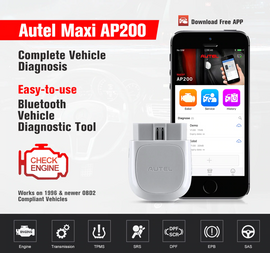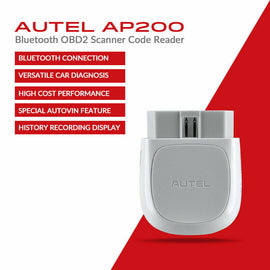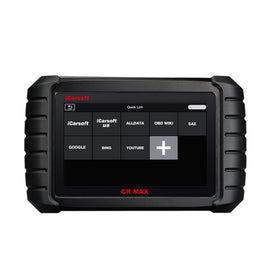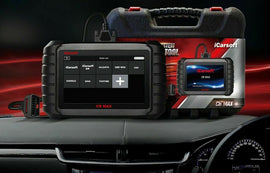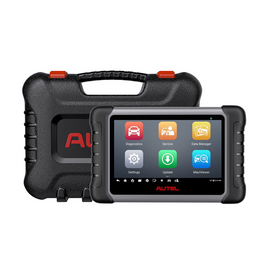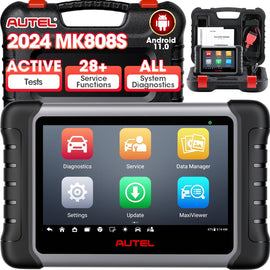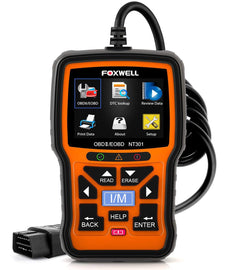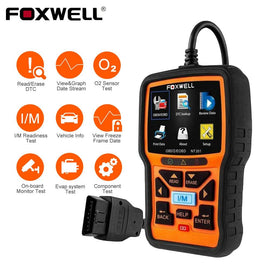GPS trackers are not uncommon in fleet management businesses. If you have a supply chain, work in the manufacturing industry, or run a travel or fleet management business, you need the best GPS auto tracker for cars. This could be a 3G GPS tracker or a 4G GPS tracker, depending on your needs.
These trackers help you keep track of your vehicles and ensure smoother operations. However, the real question is whether to choose a hardwired or a magnetic GPS tracker.
Both types of GPS serve the main functionality, like monitoring vehicles or tracking fleets, giving location information.
But they differ in how you need to operate them. Before investing, companies searching for the best fleet GPS tracking system often carefully consider these two options.
Advanced features may not be as important to individuals as portability and ease of use. Selecting the best option for your tracking requirements is made easier when you are aware of the trade-offs between magnetic and hardwired GPS trackers.
What are Magnetic GPS Trackers?
Portable, battery-operated, magnetic GPS trackers are designed for quick and easy installation. Simpleness is their best feature; you don't need any wires, drilling, or expert setup to connect them to a car, trailer, or container.
They are very adaptable and discreet due to the integrated magnets, which let users move them between various assets as needed.
These gadgets are especially well-liked for short-term monitoring scenarios. For example, during periods of high demand, a car rental company might monitor vehicles using magnetic trackers.
For peace of mind, families may install them on cars driven by younger or older drivers. In both situations, a mechanic is not required, and setup only takes a few seconds.
Users need to remember to recharge them because they are powered by internal batteries. Battery life can vary from a few days to several weeks, depending on usage. Tracking may be disrupted during crucial moments if someone neglects to recharge.

Pros of Magnetic GPS Trackers
- No tools or expert assistance are required. Connect and begin tracking right away.
- The tracker's portable design allows it to be moved between vehicles or assets as needed.
- They are useful for covert tracking because of their external placement, which reduces visibility.
- Suitable for trailers, boats, shipping containers, and other movable assets in addition to automobiles.
Cons of Magnetic GPS Trackers
- Monitoring may be interrupted by battery dependence, which necessitates regular charging.
- Not as feasible for ongoing fleet monitoring.
- Since they are external, they can be taken out if someone finds them.
What are Hardwired GPS Trackers?
Hardwired trackers are designed to be continuously monitored over an extended period of time. These gadgets don't need to be recharged because they are directly connected to the car's electrical system. They become a permanent component of the car's system after installation.
Hardwired trackers are generally regarded as the best GPS tracking system for fleets by companies that oversee sizable fleets. Fleet managers can precisely track routes, speeds, idling, and fuel consumption thanks to their unbroken data collection.
Hardwired GPS tracker installation also makes it possible to integrate it with sophisticated car diagnostics. For instance, using them in conjunction with automotive diagnostic tools can provide companies with real-time information about the condition of their vehicles, improving the effectiveness and economy of maintenance plans.
The disadvantage is that installation costs money and takes time. The tracker typically needs to be fitted by a professional, and it is more difficult to remove later than with a magnetic option. This could be a drawback for companies that anticipate regular equipment transfers.
Pros of Hardwired GPS Trackers
- By connecting to the car's electrical system, this feature removes any worries about charging.
- Supports geofencing, driver behavior analysis, route history, and more.
- After installation, they are secured inside the car, making tampering more challenging.
- Allows big companies to keep an eye on several cars at once with little downtime.
Cons of Hardwired GPS Trackers
- A Professional setup is necessary, which raises the initial outlay.
- Not made for simple car-to-car transfers.
- Operations may be interrupted while vehicles are made available for fitting.
Hardwired vs Magnetic GPS Trackers: Which Should You Choose?
The decision often comes down to whether you require consistency or flexibility. Magnetic GPS trackers are the best option for personal use or temporary monitoring. They are portable, easy to use, and reasonably priced.
Hardwired units, on the other hand, perform exceptionally well in commercial and professional settings where dependability, sophisticated tracking capabilities, and ongoing monitoring are crucial.
Both options are becoming more and more popular in Australia as people and companies look for ways to increase efficiency and security. Think about whether you require portability or long-term dependability before you buy GPS trackers in Australia.
Deploying magnetic units for temporary or seasonal assets and hardwired trackers for core fleet vehicles may be the ideal solution for some.
Conclusion
When comparing hardwired vs magnetic GPS trackers, the right choice depends on your unique needs. Hardwired trackers are ideal for long-term fleet monitoring, while magnetic options offer flexibility for temporary or personal use.
Knowing how to install GPS tracker devices correctly is also key to ensuring accuracy and reliability. At Auto Lines Australia, we provide a wide range of GPS solutions and diagnostics scan tools in Australia tailored to businesses and individuals, helping you achieve better control, security, and efficiency.
Whether you need simplicity or advanced features, Auto Lines ensures you get the best GPS tracker for your specific requirements.
FAQs
1. What are the main differences in hardwired vs magnetic GPS trackers?
Hardwired GPS trackers offer permanent installation, continuous monitoring, and advanced features, while magnetic GPS trackers provide portability, quick setup, and flexibility, making them suitable for temporary use, personal vehicles, or movable assets.
2. How do magnetic GPS trackers pros and cons compare for vehicle use?
Magnetic GPS trackers are easy to install, portable, and great for short-term monitoring. However, their reliance on rechargeable batteries and external placement may limit long-term reliability, making them less suitable for full-time fleet operations.
3. Is hardwired GPS tracker installation better than portable options?
Hardwired GPS tracker installation provides durability, uninterrupted tracking, and advanced integrations, ideal for fleets. Portable options like magnetic trackers offer flexibility but require frequent charging and are less tamper-resistant, limiting their effectiveness for ongoing professional use.

